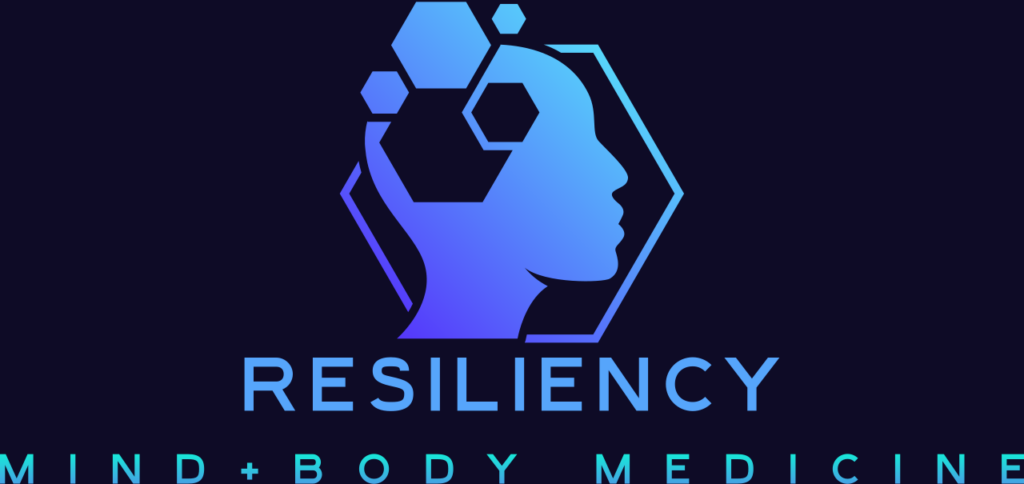By Stefani LaFrenierre, MD
As a psychiatrist with years of experience in the mental health field, I’ve encountered anxiety in its myriad forms, each presenting unique challenges and opportunities for healing. In this post, we’ll embark on a journey to unravel the enigma of anxiety, explore its telltale signs, and illuminate the path toward effective treatment, including the pivotal role of a psychiatrist in this journey.
Anxiety, at its core, is a complex interplay of psychological, physiological, and environmental factors. It transcends mere worry or apprehension, manifesting as a pervasive sense of unease, fear, or dread that can significantly impair daily functioning and quality of life. Whether it’s the relentless drumbeat of intrusive thoughts, the clammy grip of physical symptoms, or the paralyzing fear of the unknown, anxiety casts a long shadow over those it touches.
Recognizing anxiety, whether in oneself or in someone close, requires an awareness of its multifaceted manifestations. While occasional bouts of nervousness or apprehension are a natural part of the human experience, persistent and disproportionate worry that interferes with one’s ability to function may signal the presence of an anxiety disorder. Pay attention to subtle cues such as restlessness, irritability, muscle tension, and difficulty concentrating, as well as more overt symptoms like panic attacks or avoidance of certain situations.
Moreover, anxiety often coexists with other mental health conditions, such as depression or substance abuse, further complicating diagnosis and treatment. Thus, a comprehensive evaluation by a psychiatrist is essential to unravel the intricate tapestry of symptoms and formulate an individualized treatment plan.
So, what does treatment entail, and how does meeting with a psychiatrist fit into the equation?
Firstly, it’s crucial to understand that anxiety is a highly treatable condition, and seeking help is not a sign of weakness but of strength and resilience. Treatment options vary depending on the severity and specific manifestations of anxiety but often encompass a combination of psychotherapy, medication, and lifestyle modifications.
Psychotherapy, particularly cognitive-behavioral therapy (CBT), stands at the forefront of evidence-based treatments for anxiety disorders. Through structured sessions with a trained therapist, individuals learn to identify and challenge maladaptive thought patterns, develop coping strategies, and gradually confront feared situations in a supportive environment. CBT equips individuals with the tools to navigate life’s challenges with greater resilience and self-efficacy.
In conjunction with psychotherapy, medication may be prescribed to alleviate acute symptoms and provide relief from distress. Antidepressants, particularly selective serotonin re-uptake inhibitors (SSRIs) and serotonin-norepinephrine re-uptake inhibitors (SNRIs), are commonly used to manage anxiety disorders due to their efficacy and relatively favorable side effect profile. However, medication should always be prescribed and monitored by a qualified psychiatrist to ensure safety and efficacy.
Beyond psychotherapy and medication, lifestyle modifications play a crucial role in managing anxiety and promoting overall well-being. Incorporating stress-reduction techniques such as mindfulness meditation, yoga, or deep breathing exercises can help soothe the nervous system and cultivate a sense of inner calm. Adequate sleep, regular exercise, and a balanced diet also contribute to resilience and emotional stability.
Now, let’s address the pivotal role of meeting with a psychiatrist in the treatment of anxiety. A psychiatrist is uniquely equipped to conduct a comprehensive assessment, make an accurate diagnosis, and develop a tailored treatment plan based on individual needs and preferences. Beyond medication management, psychiatrists offer invaluable expertise in psychotherapy, guiding individuals on a journey of self-discovery and healing.
Moreover, the psychiatrist’s office serves as a safe and nonjudgmental space where individuals can explore their thoughts, feelings, and experiences without fear of stigma or misunderstanding. Establishing a therapeutic alliance built on trust, empathy, and collaboration is paramount to the success of treatment. Together, psychiatrist and patient navigate the complexities of anxiety, drawing upon evidence-based interventions and personalized strategies to foster resilience and well-being.
In conclusion, anxiety is a formidable adversary, but it need not dictate the course of one’s life. By recognizing the signs, seeking help from a qualified psychiatrist, and embracing a multidimensional approach to treatment, individuals can reclaim agency over their mental health and embark on a journey of healing and growth. Remember, you are not alone in this journey; psychiatrists are here to offer support, guidance, and expertise every step of the way.



